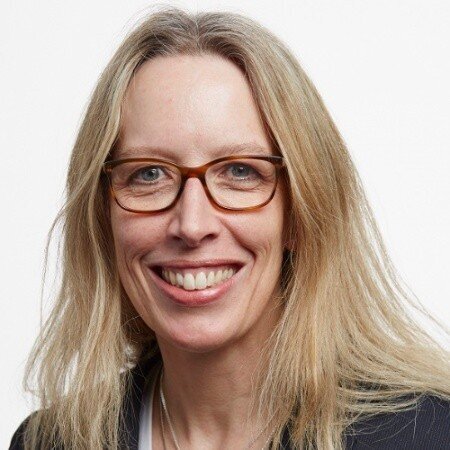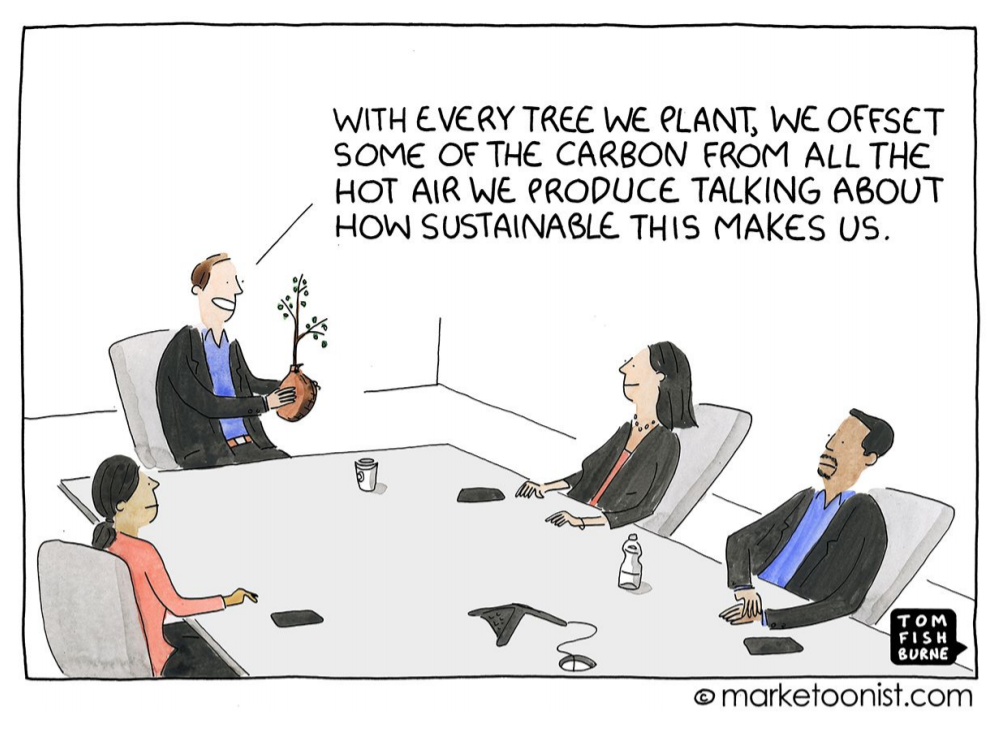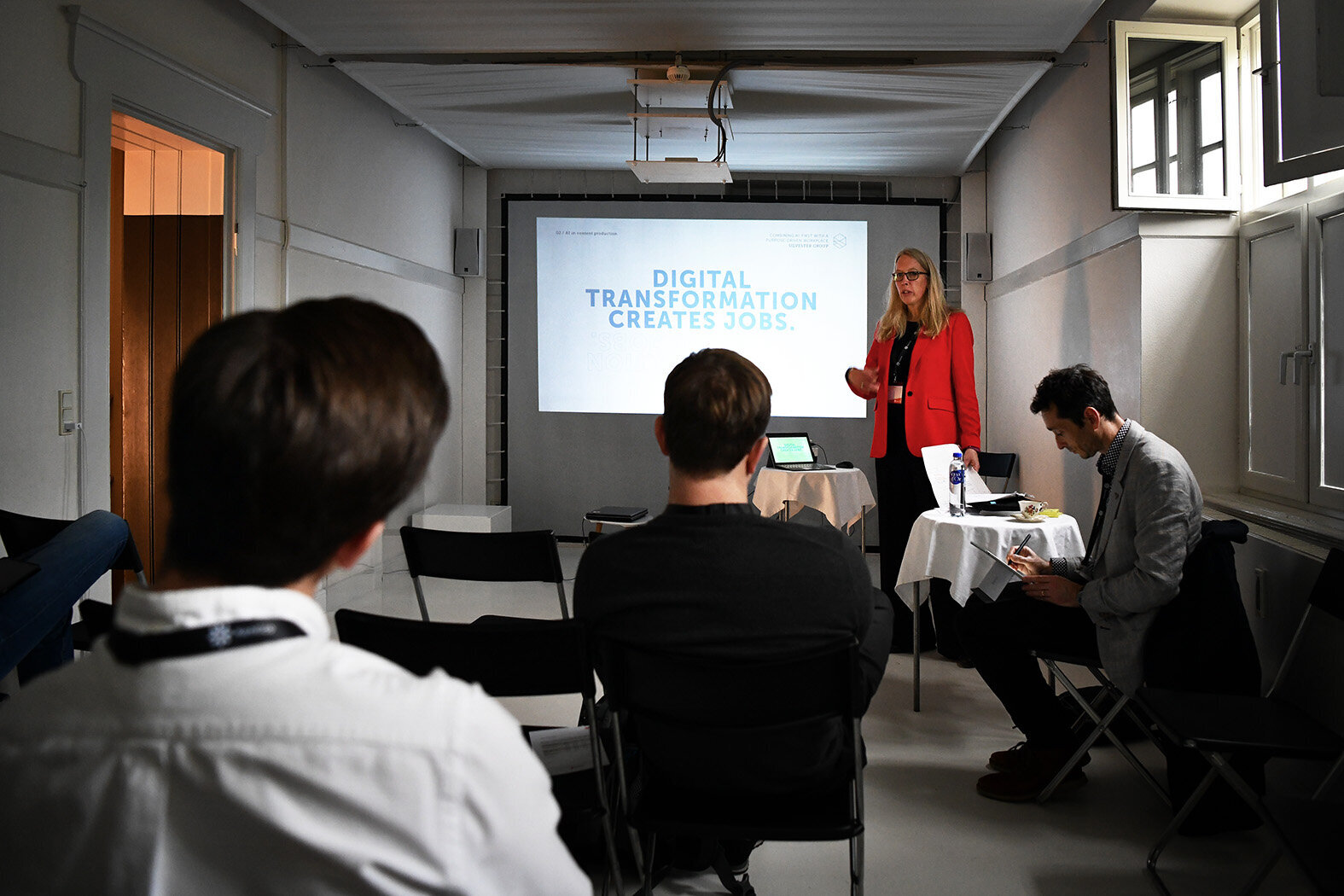by Janus Boye
Sustainability is the big thing and will be for the coming years, but what does it really mean? What do I need to do with my company, my team and myself?
In a recent member conference call hosted by Hamburg-based Christina Rahtgens, she covered how you can start your sustainability journey today and helped us understand the big picture.
Christina works as Managing Partner at Silvester Group, one of Germany's leading stakeholder relations firms. She covered how to level up your corporate social responsibility (CSR) footprint, and provided a glimpse into a rapidly changing topic that is clearly relevant for all of us.
Below are my notes from the call and towards the end you can find additional sources of inspiration on the topic and even view the recorded call.
Sustainability work is comprehensive and about adding value in all areas
When it comes to her work, Christina started the call by zooming out and illustrating how sustainability and her work is far-reaching covering areas such as financial reporting, legal requirements, attracting talent, labour conditions, fighting corruption, respecting human rights and strategic excellence.
As she said, the rate of change is also incredibly high. Just a few years ago climate reports from many large corporates were not much more than glossy brochures, but today these carry almost as much importance as the financial reporting and are read with the same scrutiny. We have moved from shareholder communications to stakeholder communications.
In addition to the communication deliverables, there’s also a growing set of legal requirements. Local governments are adding new regulation and so is the European Union at a rapid pace. Besides following the law, there’s clearly also a shifting mindset in terms of expectations from employees, partners and other stakeholders.
Finally, the United Nations 17 Sustainable Development Goals have also managed to stay relevant and on the agenda of organisations, even during the pandemic. They were set up in 2015, favour collective action by all countries and followed up on the Millennium Development Goals.
Christina Rahtgens speaking at the Boye 19 Aarhus conference. Her topic back then was Combining AI-first with a purpose-driven workplace. She will return to Aarhus in November to speak at the Boye 21 Aarhus conference.
Sustainability makes a big difference both internally and externally
In 1970, Milton Friedman argued that the only social responsibility of business was to maximize profits. In 2017, Marc Benioff the Salesforce CEO followed up on this with his now-famous quote:
The business of business is improving the state of the world.
Given Christina’s background in communication and employee engagement, she shared several interesting examples of how sustainability work can really change the game.
Externally, it can be one single part of the supply chain that changes the rules for the entire supply chain. This could be a bank that no longer wants to provide financing without following certain sustainability requirements or just an organisation that applies sustainability to its procurement.
Internally, there are also many examples of organisations investing big in telling employees how they are doing on the sustainability journey. Whether in digital or different means of communication, sustainability is a topic on people’s mind and employees expect both to hear about updates and they also want to be involved in the journey.
Christina’s key advice throughout was to keep the big picture in mind and start doing something about it.
Learn more about CSR and sustainability
Did you know: The internet has a larger carbon footprint than the airline industry, but the world is missing the equivalent of the accessibility guidelines for sustainability. The UK-based BIMA Sustainability council recently launched a low-carbon website (hosted on a wind-powered data centre!) to help any digital team (UX, design, developer, architecture, content, media, ad etc.) think about, measure and build lower carbon digital solutions. James Cannings from MMT Digital, another previous Boye conference speaker, is co-chairing the council and the agency where he works has recently announced their plans to halve their carbon footprint by 2024.
Finally, you can also lean back and enjoy the entire 26-minute recording embedded below.




